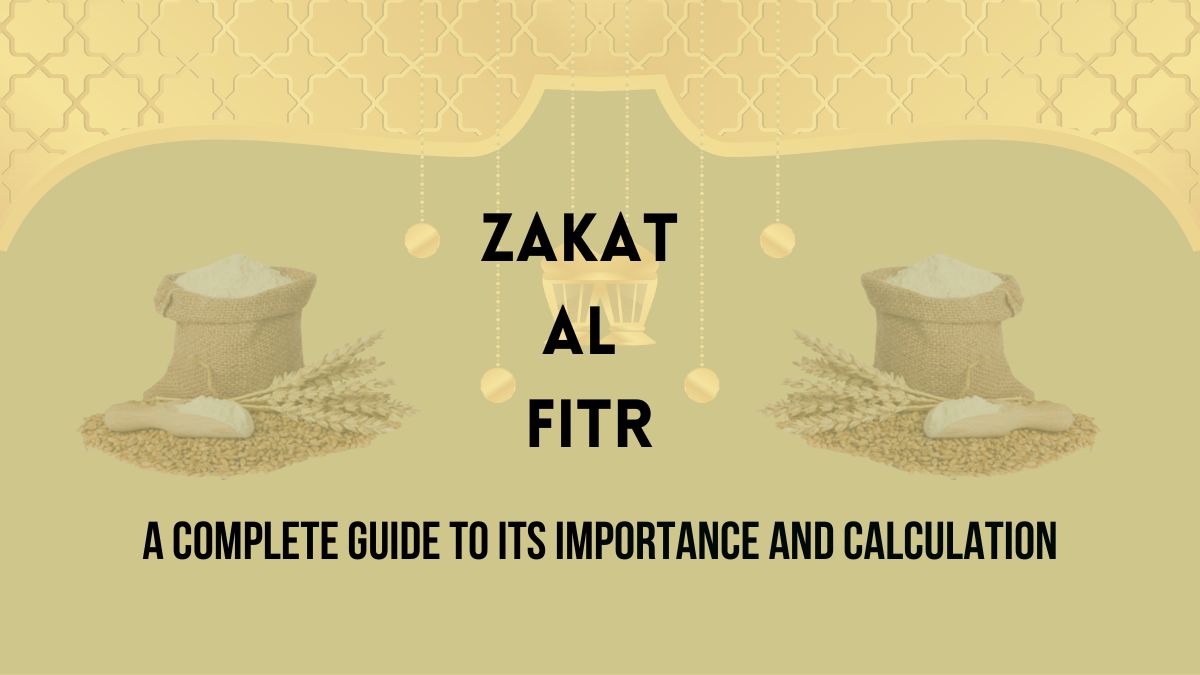Ramadan has numerous spiritual benefits, promoting self-reflection and strengthening one’s relationship with God. Ramadan, the holy month of fasting observed by Muslims worldwide, offers a multitude of spiritual benefits.
It serves as a time of self-reflection, allowing individuals to purify their minds and hearts while strengthening their relationship with God. This month-long period of fasting and increased devotion brings about a heightened sense of spirituality, as worshipers engage in acts of charity and seek forgiveness.
Through the daily recitation of the Quran and increased prayer, Muslims strive to connect with their faith on a deeper level, fostering a sense of inner peace and spiritual growth. In addition, Ramadan encourages believers to practice self-discipline and patience, promoting personal growth and a stronger sense of devotion to their faith.
Related Article: Eid Ul Fitr: Celebrating Unity, Joy, and Tradition

Related Article: Ramadan is Coming: The Ultimate Blessings from the Almighty
Connecting With The Divine
Ramadan is a sacred month, during which Muslims fast from dawn until sunset, reflecting on their spiritual growth and drawing closer to the Divine. This period fosters a profound connection with the celestial, promoting introspection, empathy, and compassion. Through the act of fasting, prayer, and reflection, individuals seek to strengthen their bond with the spiritual realm, resulting in numerous spiritual benefits.
Rekindling Faith Through Fasting
Fasting in Ramadan is not merely abstaining from food and drink; it is an act of devotion and self-discipline. By forgoing worldly pleasures, individuals redirect their focus towards spiritual nourishment, allowing for a renewal of faith and a deepened understanding of the divine presence in their lives.
Embracing Prayer And Reflection
During Ramadan, Muslims engage in additional prayers, seeking solace and enlightenment. This devoted time spent in quiet reflection promotes a sense of tranquility and closeness to the Divine. Through introspection and communication with the celestial, believers find clarity and guidance, enriching their spiritual connection.
Elevating Spiritual Awareness
The holy month of Ramadan holds immense significance for millions of Muslims around the world. Apart from the physical challenges of fasting, this sacred month offers numerous spiritual benefits that elevate one’s awareness and connection with the divine. Through acts of worship and self-reflection, Ramadan provides an opportunity for individuals to seek forgiveness and mercy, and to develop empathy and compassion towards others.
Seeking Forgiveness And Mercy
Ramadan is a time for believers to reflect on their actions and seek forgiveness for their shortcomings. The act of fasting encourages self-discipline and self-control, allowing individuals to become more aware of their mistakes and repent for their sins. During this blessed month, Muslims devote themselves to acts of worship such as praying, reciting the Quran, and engaging in charitable deeds. These acts are not only a means of seeking forgiveness from Allah, but also a way to cleanse one’s soul and strengthen their bond with the Almighty.
Developing Empathy And Compassion
Ramadan fosters a sense of empathy and compassion within individuals, promoting harmony and unity within the community. One of the basic principles of fasting is to experience hunger and difficulties faced by the less fortunate. This deepens one’s understanding of the struggles faced by those living in poverty and encourages acts of charity and kindness. Muslims are encouraged to give generously to the needy and participate in charitable initiatives, helping to alleviate the suffering of others. Through their acts of compassion, believers cultivate a sense of empathy towards others and develop a strong bond of brotherhood and sisterhood.
Participating in communal prayers and taraweeh (night prayers) also creates a sense of solidarity among Muslims, fostering an environment of love and support. Breaking the fast together and sharing meals during suhoor (pre-dawn meal) and iftar (meal to break the fast) reinforces the spirit of unity and compassion among family members and the wider community. Ramadan teaches individuals to put the needs of others before their own, cultivating a genuine sense of empathy and compassion that extends beyond the holy month.
Strengthening Self-discipline
One of the significant spiritual benefits of Ramadan is the opportunity it provides to strengthen self-discipline. Fasting from dawn till sunset requires individuals to have a high level of self-control and adherence to specific guidelines. This period of self-discipline extends beyond abstaining from food and drink and encompasses various aspects of one’s life.
Cultivating Patience And Resilience
Fasting during Ramadan helps individuals cultivate patience and resilience as they endure physical and mental challenges throughout the day. By willingly abstaining from basic needs for an extended period, individuals train their minds and bodies to adapt and persevere in the face of discomfort. This ability to endure hardships fosters personal growth and builds mental strength.
Avoiding Negative Behaviors
Another way Ramadan strengthens self-discipline is by encouraging individuals to avoid negative behaviors. During this holy month, believers are not only required to abstain from food and drink but also from harmful actions such as lying, gossiping, and engaging in unhealthy relationships. By consciously refraining from such negative behaviors, individuals develop inner discipline and become more aware of their actions, fostering personal growth.
Furthermore, Ramadan serves as a means of breaking bad habits and replacing them with positive ones. The emphasis on self-discipline during this month often leads to individuals reassessing their lifestyle choices and making positive changes. This can include giving up addictive behaviors, such as smoking or excessive gaming, and replacing them with healthy alternatives.
Fostering Unity And Community
During the holy month of Ramadan, Muslims around the world come together and celebrate the spiritual benefits of this sacred time. One of the key aspects that Ramadan emphasizes is the fostering unity and community. Let’s delve into how this significant month fosters a sense of togetherness and belonging among individuals and communities.
Sharing Generosity And Kindness
Ramadan serves as a time for exemplifying generosity and spreading kindness within the community. Fasting helps to cultivate empathy, making individuals more inclined to understand and help those around them. This spirit of giving and sharing extends to the entire community, fostering a sense of unity and fellowship among its members.
Engaging In Acts Of Service
Acts of service and helping those in need are key aspects of Ramadan. Whether it’s through serving meals at community iftars, volunteering at local charities, or donating to those less fortunate, the community becomes increasingly interconnected as individuals actively engage in selfless acts. This collective participation in acts of service promotes a strong bond and solidarity within the community.
Nurturing Gratitude And Contentment
Ramadan offers spiritual benefits that go beyond fasting. It is a time when Muslims focus on nurturing gratitude and contentment, appreciating the blessings in their lives and practicing thankfulness on a deeper level.
Reflecting On Blessings And Abundance
Reflecting on blessings and abundance during Ramadan allows individuals to appreciate the goodness in their lives and cultivate a sense of contentment.
- Expressing gratitude for health, family, and food
- Recognizing the blessings of community and faith
- Realizing the abundance of spiritual growth opportunities
Practicing Gratefulness In Daily Life
Practicing gratefulness in daily life extends beyond Ramadan, encouraging individuals to maintain a thankful mindset year-round.
- Starting each day with gratitude journaling
- Expressing appreciation to loved ones regularly
- Finding joy in small everyday blessings
Related Article: The Five Pillars of Islam: A Comprehensive Guide

Related Article: Peace in Islam: Understanding its Amazing Transformational Power
To know more about Spiritual Benefits of Ramadan>>
Conclusion
The spiritual benefits of Ramadan are profound, offering a time for reflection, self-discipline, and connection with the divine. The practice of fasting and increased prayer during this holy month can lead to a greater sense of gratitude and mindfulness. As Muslims engage in acts of charity and community, Ramadan fosters a spirit of unity and compassion.
These spiritual rewards extend beyond the month, enriching the lives of individuals and communities.
Related Article: How Does Islam Affect Daily Life: Unveiling the Impact
You may also read: Zakat Al Fitr: A Complete Guide to Its Importance and Calculation





The Holy Ramadan can purify us spirituality.
Thanks for being with us. Stay Connected.